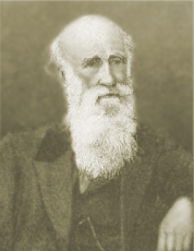On 9 January, the European Year for Development was launched officially at a special event in Riga in conjunction with the opening of Latvia’s presidency of the Council of the EU.
Two days earlier the European Union was attacked on its values. Therefore may citicenzs and politicians came onto the streets to show others they may never forget that the European Union is based on values.
![]() The European Economic and Social Committee (EESC) representing the various economic and social components of organised civil society, with its president Mr Malosse has called for a reform of European development policy and asks never commercial interests to be our guiding principle, the foundation of all our work, especially in the EU’s action beyond our borders. Nothing must detract from our values.
The European Economic and Social Committee (EESC) representing the various economic and social components of organised civil society, with its president Mr Malosse has called for a reform of European development policy and asks never commercial interests to be our guiding principle, the foundation of all our work, especially in the EU’s action beyond our borders. Nothing must detract from our values.
This does not mean imposing our values, or becoming another superpower, but rather adhering to them ourselves and taking a firm stance in dialogue.

Henri Malosse, EESC President with Ruslana Lyzhychko and José Manuel Barroso, European Commission President, at the 01/2014 EESC Plenary in Brussels.
at the Riga, opening speech the president said.
In this respect, we must build up a dialogue of equals with our partners and return to the principles that prevailed when the Lomé Convention was signed: to negotiate, not grant favours. Let’s stop giving aid and instead work together for shared development!
For the EESC it is clear that
the European model of regional integration, cultural dialogue and true partnership must be at the forefront of this process, as one of the best ways of bringing about development.
Though we must not forget and be careful not to overlook another important task to ensure that it is ordinary people who benefit from the support – not the local middle-men, oligarchs or corrupt officials.
“We have to seize the occasion of the European Year for Development to make our policy more effective in resolving the huge problem of poverty. First of all, we should make the policy for development a Community policy.”
“It is also vital to redesign procedures, by reducing the bureaucracy involved, and to concentrate our funding efforts on populations’ concrete needs”.
The EESC, which had to hear that there are not enough human resources to implement multiple, complex projects, has played an influential role in establishing 2015 as the official European Year for Development (EYD2015). In 2013, the EESC adopted a special opinion on the European Year of Development with rapporteur Andris Gobiņš, which provided firm support for the first ever European Year with a strong global and rights-based dimension. The idea was consistently promoted by the EESC, together with other civil society organisations, the most prominent of which was CONCORD – the European confederation for relief and development – until EYD2015 received official approval from the EU institutions in the spring of 2014.
“It is the first year which explicitly looks beyond the EU’s geographic territory and seeks to be more than just about informing people or campaigning. It aims to increase engagement and discussion, and puts civil society at the core of the process. It presents a great chance to go beyond the traditional players by involving more stakeholders, including those from the private sector, trade unions, consumers, environmentalists, NGOs“,
said EESC member Andris Gobiņš. The EESC has worked to put civil society at the core of EYD2015 and supported the establishment of a broad alliance of civil society organisations, coordinated by CONCORD, to play a key role in designing a wide civil society action programme.
The EESC is willing to look for and to find solutions, relying more for example on the social partners and civil society organisations, especially in countries where civil society is strong and active, as is the case in Ukraine, for instance. They are familiar with the field and can provide effective leverage for the EU.
To do this, we must go beyond mere consultation (and even that does not always happen, or is just a formality) and devise innovative tools for implementation other than traditional projects or budgetary support.
Malosse said. He pleaded further:
Ladies and gentlemen, my plea is that this year, the European Year for Development, should be a real opportunity to reform this policy. It has become bogged down in technical detail, red tape and procedures over the last 20 years, but today we can once again make it one of the EU’s flagship missions.






































 Biblestudents – Bijbelstudenten
Biblestudents – Bijbelstudenten 0 + Bloggers for Peace
0 + Bloggers for Peace Free Christadelphian Ecclesia
Free Christadelphian Ecclesia Hoop tot Leven – Redding in Christus
Hoop tot Leven – Redding in Christus Vrije Broeders in Christus (Free Flemish Christadelphians on Wordpress)
Vrije Broeders in Christus (Free Flemish Christadelphians on Wordpress)















Pingback: Coming closer to the end of 2015 and the end for Donald Trump as presidential candidate | Marcus Ampe's Space
Pingback: Overzicht voor het jaar 2015 #1 Dreiging en angst | Marcus Ampe's Space
Pingback: Summary for the year 2015 #1 Threat and fear | Marcus Ampe's Space
Pingback: Russia not wanting it neighbours countries to cooperate with the West – Some View on the World